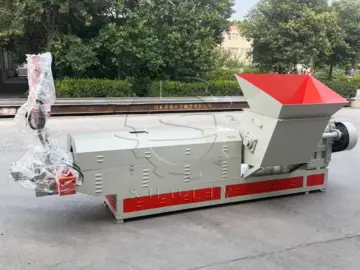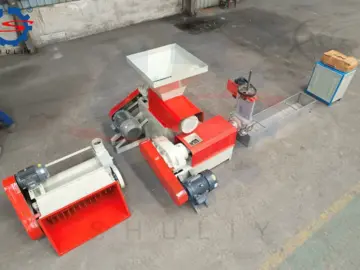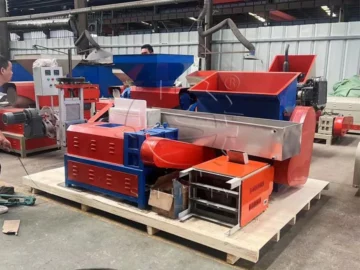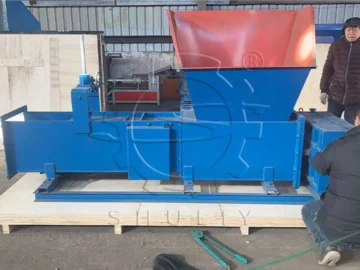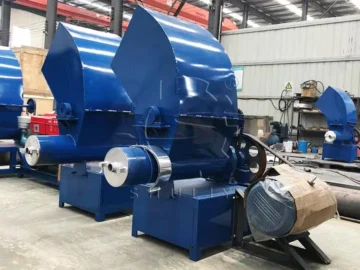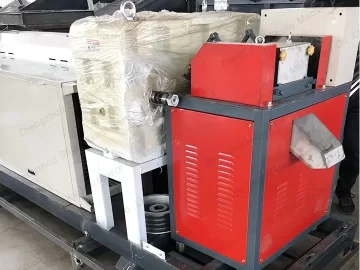La máquina de pelletizado de espuma EPS es un equipo importante utilizado para convertir los desechos de espuma EPS en pellets reutilizables. Sin embargo, en el proceso de uso de plástico de espuma extruido, a menudo se encuentran algunos problemas comunes. En este artículo, presentaremos tres problemas comunes del plástico de espuma extruido y proporcionaremos las soluciones correspondientes.
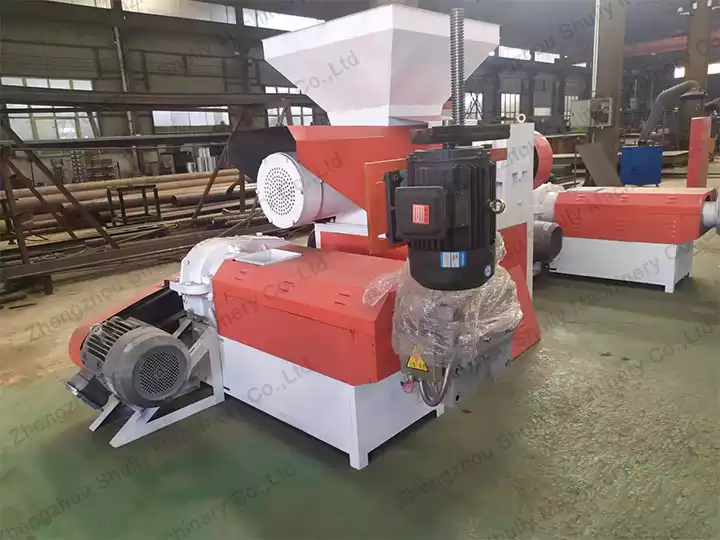
Calidad de pellet irregular
En el proceso de uso de la máquina de pelletización de espuma EPS, a veces las partículas no son uniformes. Es decir, algunas partículas son demasiado grandes y otras demasiado pequeñas, lo que afecta la calidad de las partículas regeneradas. Las principales razones de las partículas irregulares pueden incluir lo siguiente:
- Alimentación inestable: La estabilidad de la alimentación de la máquina de pelletizado de espuma EPS tiene una gran influencia en el tamaño de las partículas durante el proceso de trabajo. Si la alimentación no es estable, llevará a un tamaño de partículas desigual.
- Desgaste del cuchillo: El cuchillo es uno de los factores importantes que afectan el tamaño de las partículas. El desgaste del cuchillo conducirá a un mal efecto de corte, lo que afectará la uniformidad de los gránulos.
Soluciones
- Asegure la estabilidad de la alimentación de espuma plástica extruida y evite la alimentación intermitente o demasiado rápida, lo que se puede lograr ajustando el sistema de alimentación.
- Revise regularmente el desgaste de las cuchillas del extrusor de gránulos de espuma plástica y reemplace las cuchillas muy desgastadas a tiempo para mantener un buen efecto de corte.
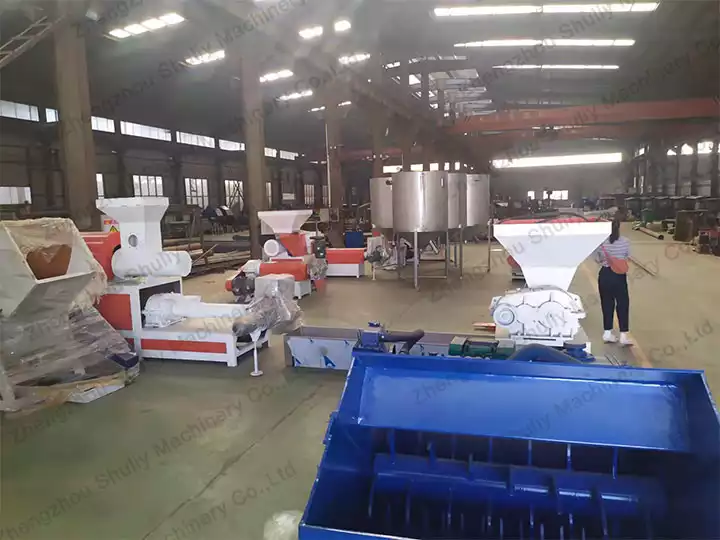
Disminución de la producción de la máquina de pelletizado de espuma EPS
Otro problema común es una disminución en la producción de espuma plástica extruida, es decir, se producen menos pellets en la misma cantidad de tiempo de trabajo. Esto puede deberse a las siguientes razones:
- Velocidad de alimentación inadecuada: Una velocidad de alimentación demasiado rápida o demasiado lenta puede afectar la producción del extrusor de gránulos de reciclaje de espuma plástica. Una velocidad demasiado rápida puede provocar el atasco del equipo, mientras que una velocidad demasiado lenta no aprovecha completamente la eficiencia del equipo.
- Sobrecalentamiento: El calor generado por la máquina de pelletizado de espuma EPS mientras trabaja afectará la capacidad del equipo. El sobrecalentamiento puede hacer que la máquina se apague para enfriarse, lo que reduce el tiempo de producción.
Soluciones
- Ajusta la tasa de alimentación para asegurar una alimentación suave y mantener las condiciones normales de trabajo del equipo.
- Revisa regularmente el sistema de refrigeración del equipo para asegurarte de que no se apague debido al sobrecalentamiento.
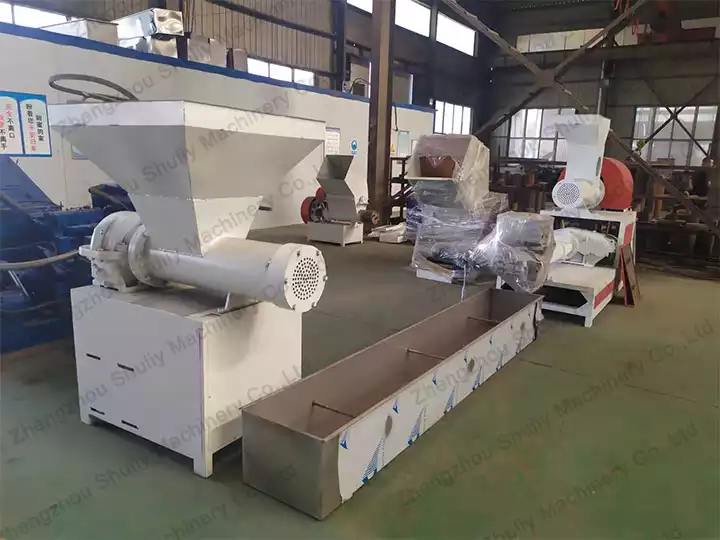
Ruido excesivo del extrusor de espuma de plástico
El ruido excesivo es uno de los problemas comunes con las máquinas de pelletizado de espuma EPS, que no solo afecta el entorno de trabajo, sino que también puede indicar un fallo en la máquina. Las razones del ruido excesivo pueden ser las siguientes:
- Desequilibrio del equipo: La máquina de pelletizado de EPS causará ruido si las partes de transmisión están desequilibradas o inestables durante el funcionamiento.
- Mala lubricación: La mala lubricación del equipo aumentará la fricción entre las partes, lo que llevará a un aumento del ruido.
Soluciones
- Revisa regularmente las partes de transmisión del equipo para asegurarte de que estén equilibradas y estables.
- Mantén el sistema de lubricación del equipo para mantener buenas condiciones de lubricación y reducir la fricción y el ruido.
Shuliy Máquina de pelletizado de espuma EPS en venta
Para evitar los problemas mencionados, puedes elegir la máquina de pelletizado de espuma EPS de Shuliy. Como fabricante profesional, Shuliy presta atención a los detalles y al control de calidad durante el diseño y la producción del granulador de espuma EPS para garantizar la estabilidad y fiabilidad de la máquina.
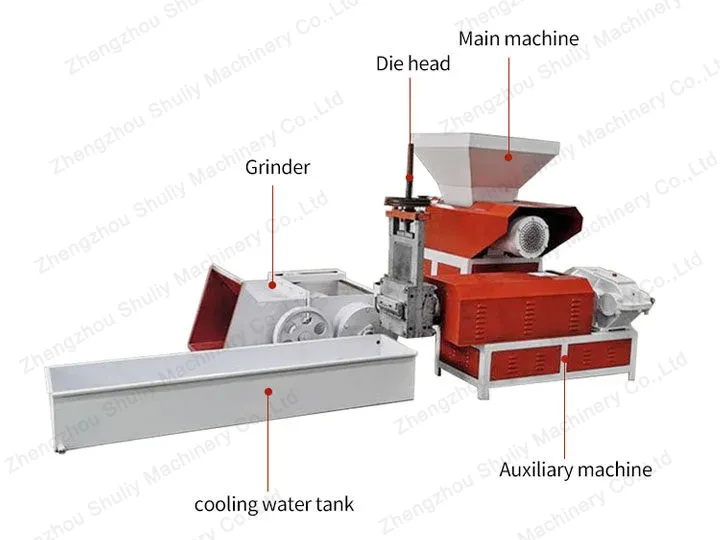
El granulador de espuma Shuliy adopta tecnología avanzada para garantizar gránulos uniformes, capacidad estable y bajo ruido durante su funcionamiento. A través de una estructura bien diseñada y un estricto control de calidad, el granulador de espuma Shuliy puede proporcionarle soluciones de producción eficientes y estables, ayudar a que su línea de producción funcione sin problemas y mejorar la eficiencia de producción.
En resumen, al elegir el granulador de espuma Shuliy, no solo puede obtener equipos de alta calidad, sino también evitar problemas comunes de producción, garantizar el funcionamiento estable de su línea de pelletización de espuma plástica, y brindarle más valor y beneficios.
